When people think of the word “relationship,” they usually think of a connection. Your relationships could be with a family member, romantic partner or a friend. However, some relationships may be hurtful to the heart, and even considered toxic. Having a healthy relationship is the key to success in connections.
Healthy relationships are built on trust, communication, respect and support. Without these things, your relationship will not survive. Think of a relationship as a house: you first need a good foundation. Building the relationship on communication will help it grow. If both people talk and communicate with each other, less fights and arguments will occur. When you don’t talk through issues, it continues to escalate and that leads to people breaking apart.
Walls are important to building a house. As in a relationship, support, trust and respect are all walls needed for the house. Support is important because it encourages emotional connections, helps partners navigate challenges together and creates a sense of safety and understanding.
Trust forms effective communication and a sense of security. It allows both people to feel confident in each other, encouraging a stable supportive connection.
Respect is vital in a healthy relationship. It acknowledges each person’s individual boundaries and feelings. It creates a positive atmosphere, promotes open communication and contributes to a strong foundation of mutual understanding and support.
The roof is the final part of a house. It provides protection from the environment. In this case we can look at the environment as other people judging or disagreeing. The roof is the bond between the two people that is unbroken and will stay together no matter what the “environment” throws at them.
However, there are also unhealthy relationships. Think of these as collapsing houses. Usually these houses start with bad foundations, loosely built walls and an unstable roof.
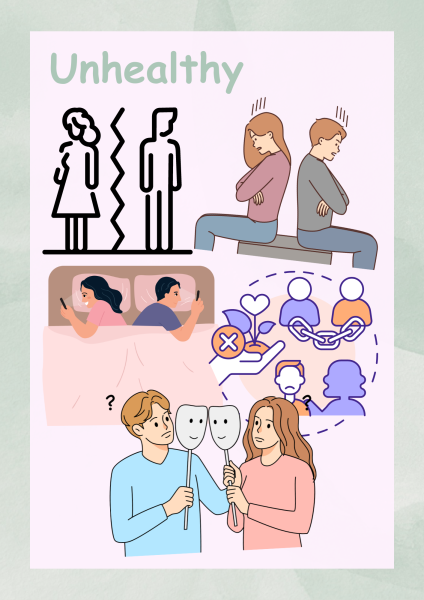
Unhealthy relationships are characterized by patterns of negative behaviors, such as lack of communication, disrespect, control, manipulation, emotional or physical abuse and a general sense of unhappiness or toxicity. It often involves an imbalance of power and does not contribute positively to the well-being of individuals involved.
When I think of examples of a unhealthy relationship, I think of the movie, “Twilight.” It has been criticized for portraying an unhealthy relationship between Bella and Edward. Some argue it glorifies controlling behavior, obsession and lack of personal boundaries, which can send problematic messages about what constitutes a healthy relationship.
In the movie, Edward’s overprotecting nature and controlling tendencies are apparent. Such as him frequently making decisions for Bella without her input. At the end of this, the idea of Bella sacrificing her own well-being for the relationship can be seen as problematic, as it undermines the importance of individuality independence and personal growth in a healthy partnership.
Being in an unhealthy relationship can have effects on your metal health. It can lead to stress, anxiety, low self-esteem and insecurities. They often delay personal growth and happiness, making it challenging to thrive both individually and as a couple.
It’s important to prioritize one’s health and seek support or make changes if a relationship is constantly negative. Being in an unhealthy relationship is similar to being immersed in a situation that is harmful or adverse to one’s overall well-being.
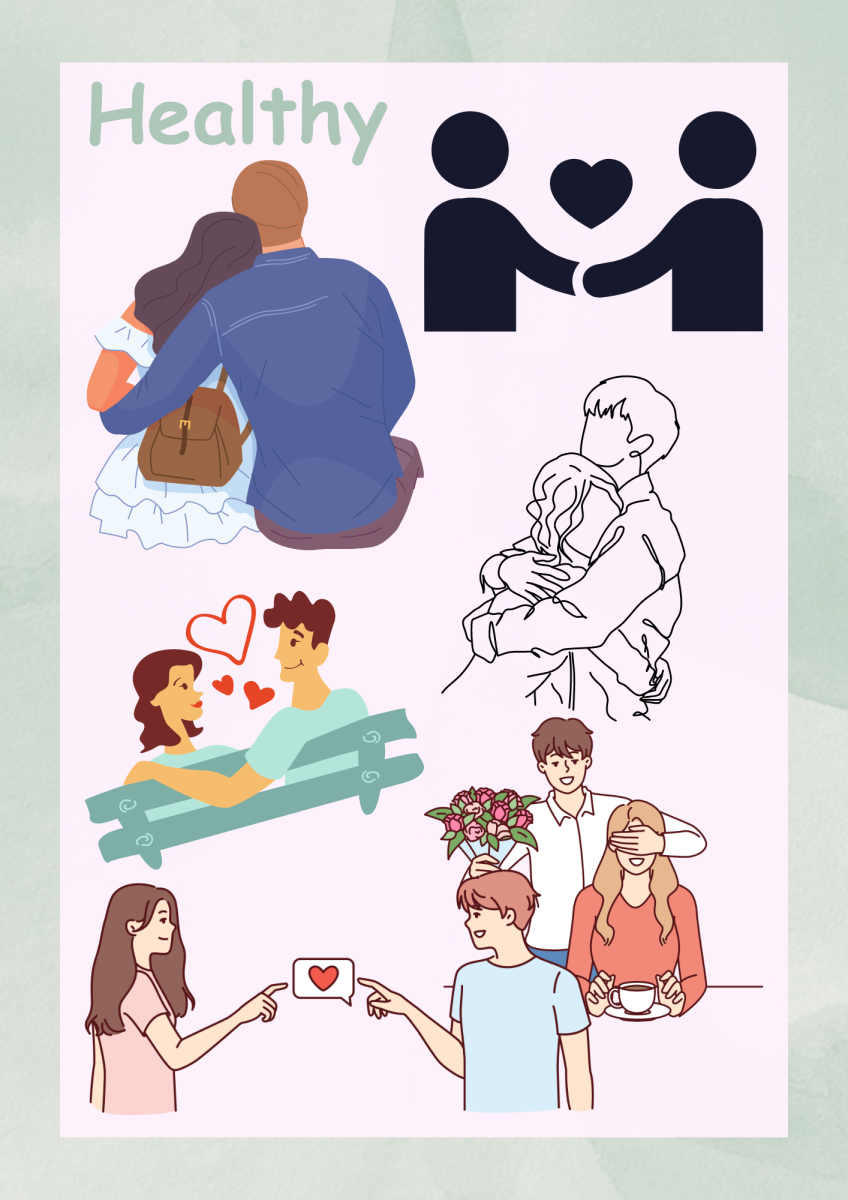



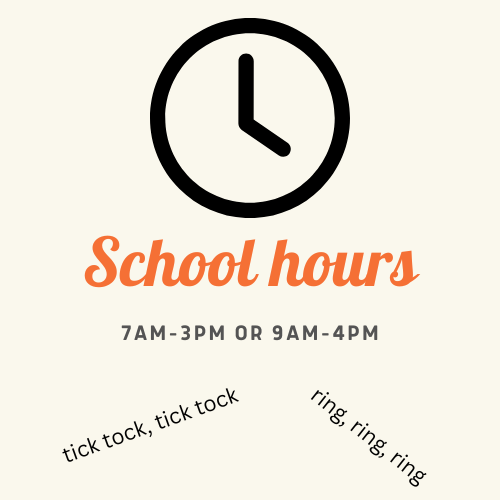
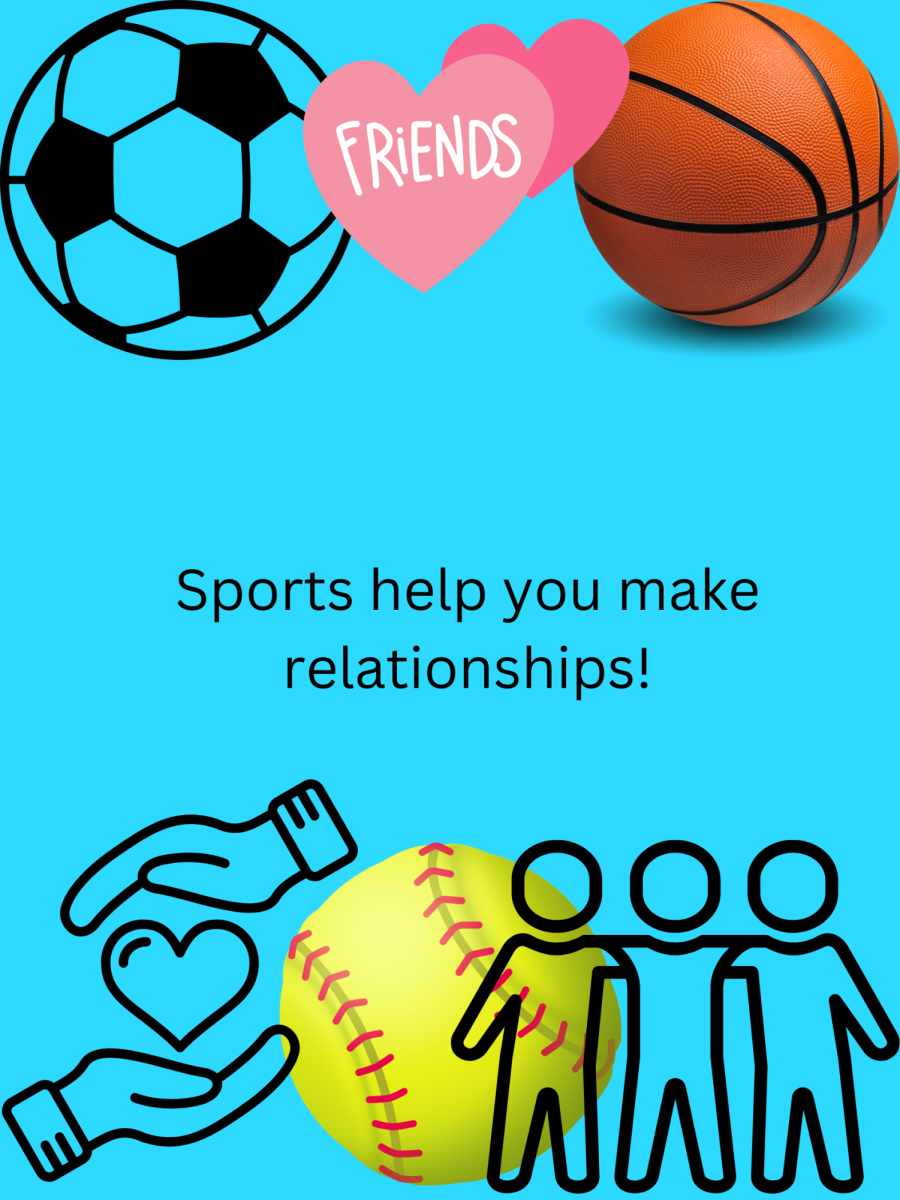
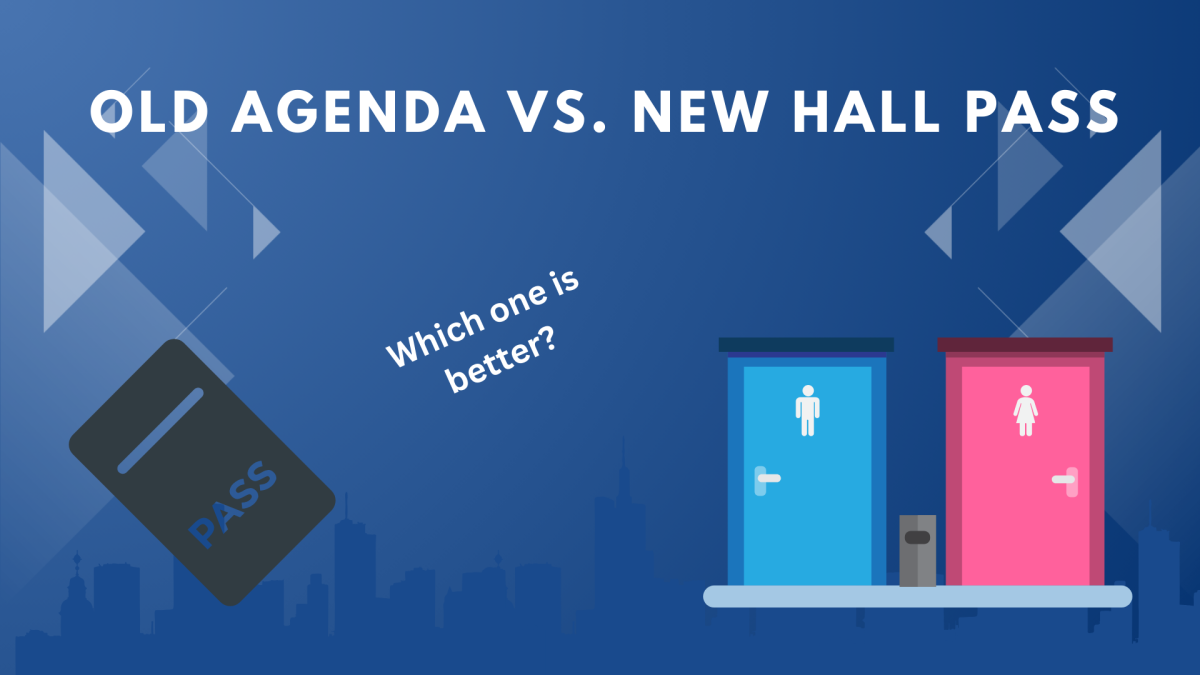

McKenna Koeck • Feb 29, 2024 at 10:53 am
I hear so many girls in school constantly saying, “I miss my man” when they literally saw their boyfriend two periods ago. Then those same girls go home and ignore all their friends and family and talk on the phone with their “man” for hours on end. Or they’re constantly hanging out with their boyfriend. That is another example of an unhealthy relationship. Sure, you need to spend time with a romantic partner, but not too much time. You need to make time for friends, family, and yourself. Your everything can’t be dependent on one person. Your life is so much more than just the person you’re dating. Separation in a relationship is healthy, but not too much. I have first hand experience with an unhealthy obsessive relationship. In one of my recent past relationships, I was so obsessed with this person, and everything about them consumed me. I would be texting them every second, and we would be on a phone call for hours on end every day. When I wasn’t with them, I was thinking about them LITERALLY 24/7. When I was with that person, I would tend to ignore all my other friends. For example, A year ago I went to my friends birthday party, and the person I was dating was there, and I basically ignored my friend and talked to the person I was dating the entire time. THAT ISN’T HEALTHY! The obsessiveness got overwhelming for both of us, and it was one of the main reasons we broke up. So, if your relationship with your boyfriend, girlfriend, romantic partner, or even your crush is anything like what I just described, it most likely is NOT healthy. So, if you’re dating someone, make sure there is a healthy amount of separation between you two.
Campbell Fleegle • Oct 22, 2024 at 12:12 pm
The constant thought of dating at this school drives me crazy!!!
ELLA! • Oct 29, 2024 at 4:20 pm
agreed Campbell, agreed.